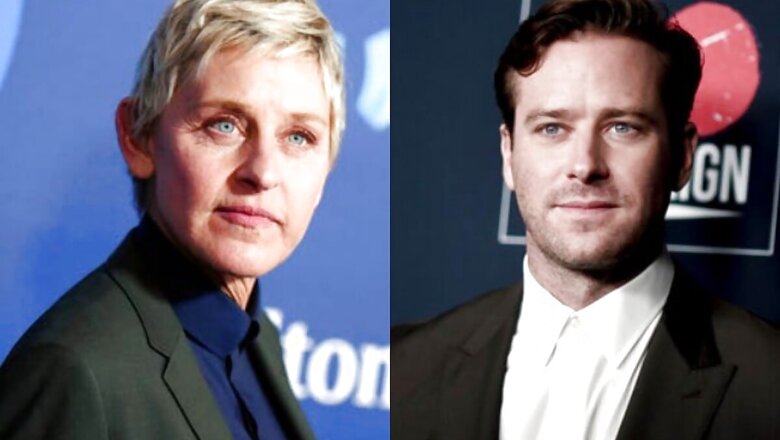
views
Ellen DeGeneres, Gal Gadot, JK Rowling, Vanessa Hudgens, Elon Musk, and Armie Hammer were some of the biggest celebrities who have been ‘cancelled’ during the pandemic. While some of them were ‘tone-deaf’ to people’s problems during the pandemic, others were called out for serious allegations of racism, transphobia and even sexual assault.
In July, last year, JK Rowling was among 152 celebrities across different fields to have signed an open letter against ‘Cancel Culture.’ In the letter, which was published in Harper’s Magazine, Rowling said that she was “proud to sign this letter in defence of a foundational principle of a liberal society: open debate and freedom of thought and speech.”
However, the truth is, the reason JK Rowling was canceled by hundreds of Harry Potter fans and actors including Daniel Radcliffe, Emma Watson and Rupert Grint was because of her derogatory comments on trans people. Through a series of tweets, she said trans women were not real women, supported another anti-trans activist who called them ‘men in dresses’ and described hormones and surgery for transgender people as “a new kind of conversion therapy.”
The matter of fact is, in the name of expressing her ‘freedom of speech,’ Rowling discredited and invalidated an entire community. However, she also found solidarity from some of her friends, who happened to be rich, White and cis-gendered. Actor Ralph Fineness said, “I can understand the heat of an argument, but I find this age of accusation and the need to condemn irrational,” adding that he “couldn’t understand” the “vitriol” directed against her. He left out the fact that as a cis-gendered man, he wouldn’t understand what trans folks go through, anyway.
Still, when JK Rowling signs an open letter against Cancel Culture along with people like Noam Chomsky and Gloria Steinem, we find ourselves asking if Cancel Culture is curtailment of freedom of speech and expression or is it a form of accountability.
The answer is quite complex. For starters, the term Cancel Culture in itself is negative. The terminology implies that it has become the audience’s habit to cancel celebrities, and doing so, it trivialises the ‘movement.’ On the other hand, Cancel Culture isn’t anything new, Jane Fonda got ‘canceled’ when she protested against the Vietnam War. In 2003 popular American band Dixie Chicks, now called the Chicks, criticised then US President George Bush for America’s invasion of Iraq. They were promptly shunned by people and their careers took a nosedive. Janet Jackson was ‘canceled’ when Justin Timberlake tore her blouse during their Superbowl Halftime performance. Celebrities, especially women have been getting ‘canceled’ before Cancel Culture was a term.
The difference is that now there is a worldwide platform for the audience to speak their minds. Through a tweet or Instagram post, a person can call out a celebrity or a person with influence and others who agree with them follow. Of course, with a tool like social media, where a lot of people follow a herd mentality, it is easier to make a mountain out of a molehill.
Recently, pop-singer Demi Lovato was canceled because she made fun of her Disney channel contemporary Selena Gomez. However, after a day or two of intense trolling it was found that it was a fake account.
Chris Pratt got cancelled for being an alleged Trump supporter. He was also called the worst Chris of Hollywood. His Marvel colleagues including Robert Downey Jr, Mark Ruffalo, Zoe Saldana and James Gunn quickly jumped into his defense. But they also got canceled for defending him and not people like Brie Larson, Elizabeth Olsen and Don Cheadle who face intense sexism and racism from fans.
Celebrities keep getting canceled every day, and mostly it is because a person is not ‘woke’ enough. However, people also argue the standards of ‘wokeness’ keep changing with changing times. What was comedy back in the early 2000s is blatant racism now. Issues like ableism, gatekeeping and casual sexism are also harder to catch and rectify. In that sense, every celebrity has done something problematic in their life. And with social media, there are receipts for people to constantly remind them of that.
However, this also means that all the anger people direct towards celebrities are limited to social media. Most canceled celebrities don’t actually face consequences in real life. In a podcast, The Good Place actress Jameela Jamil said, “We need to separate what’s been canceled and what’s being called out. Celebrities are such snowflakes. They don’t know how to take criticism, because they’ve never been criticised before. So when they’ve just been called out, they’ll cry cancel culture, but that’s not very helpful because it muddies the waters to what cancellation is! Cancellation means being de-platformed, having your rights taken away, your job taken away, your finances being harmed. That mostly happens to civilians, not celebrities. I got canceled 45 times in February. All of my shows got recommissioned, I landed a huge campaign, and my book deal remains. I’m fine.”
Of course, like every ‘movement’ there is a flip-side to this. Rarely but surely, many celebrities are being held accountable for their actions. The biggest and most recent example of this is the case of Armie Hammer. The Rebecca actor was called out by an Instagram account for disturbing behaviour, emotional abuse, rape and cannibalistic fantasies. The first reaction to this was of disbelief with a lot of people saying Hammer was being kink-shamed. Armie, himself had called the claims “bull****.” However, more and more victims came out, including two girlfriends who said the actor emotionally and physically abused them. Eventually a woman came out and reported that the actor raped her in NYC.
Hammer has been dropped from multiple projects since then. His agency and publicist have also dropped him. Without social media solidarity, an actor as influential as Armie Hammer would have never suffered real consequences for his actions. Same goes with Marilyn Manson, who was a cultural icon despite years of public racism and anti-Semitism. When victims, including actress Evan Rachel Wood spoke out about the horrific and prolonged physical and sexual abuse they suffered in the hands of Manson, the actor was finally dropped from his label.
During the Black Lives Matter Movement in the US in 2020, many studio executives, TV shows and stars were called out for their racially insensitive problems. Anthony Mackie, who plays the Falcon in the Marvel films, said the studios had a ‘race’ problem. Actress Samantha Ware accused Glee star Leah Michelle for racist and problematic behavior on set. Michelle lost out a number of deals. Riverdale star Vanessa Morgan and Ashley Murray called out the show for reducing Black actors to diversity quotas. These attracted apologies from the big productions. Even when we cannot guarantee if these players would actually make good of their promise, getting an apology from people in power is also a big deal.
The Ellen Show, hosted by Ellen DeGeneres was one of the most watched shows on television since 2003. However, during the pandemic many ex and present employees of the show came out to talk about the toxic work environment. Ellen DeGeneres was called out for being ‘cold’ and ‘mean.’ However, this was not the only repercussion of The Ellen Show being canceled. The employees also came out and talked about the ‘rampant’ sexual misconduct and harassment that the Executive Producers of the show engaged in for years. Executive producers Ed Glavin and Kevin Leman, and co-executive producer Jonathan Norman were fired following the allegations.
Hence, Cancel Culture is an extremely complicated and layered ‘movement,’ if it is at all a movement. It can threaten the mental peace and stability of a celebrity who committed a mistake or was ignorant, but it can also bring abusive behaviour to the spotlight. How much tangible change it can actually bring, remains an open-ended question.
Read all the Latest News, Breaking News and Coronavirus News here. Follow us on Facebook, Twitter and Telegram.















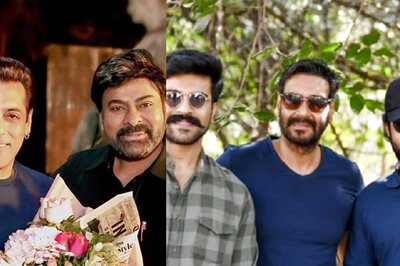

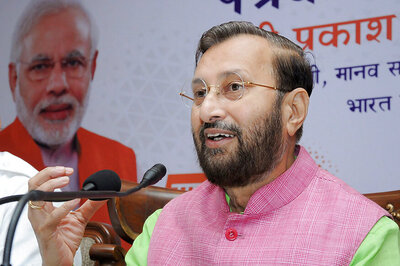
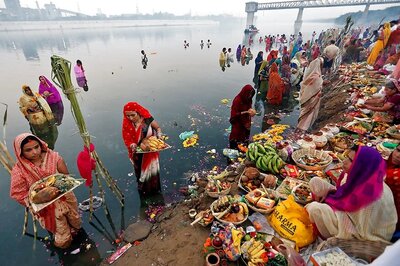
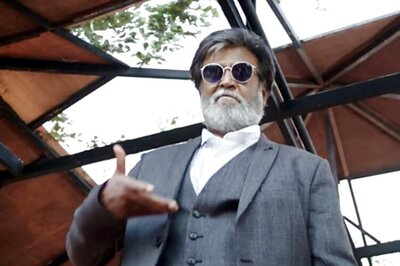
Comments
0 comment